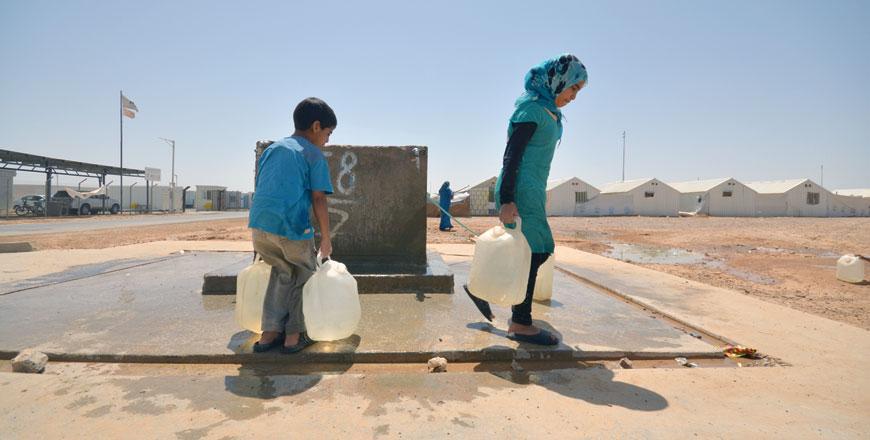- Local News
- Mon-2020-06-22 | 04:00 pm

The new JRP aims to reduce pressure on the Kingdom’s role as a host country, improving living conditions and helping refugees and host communities to rely on themselves in eliminating vulnerabilities and supporting Jordan in maintaining quality service provision for Syrian refugees, according to the booklet.
The budget requirements for the new JRP reach a total of around $6.6 billion, with the total required for each year at an average of $2.2 billion, the booklet said.
In the foreword, Minister of Planning and International Cooperation Wissam Rabadi wrote: "Nine years into the Syrian crisis, Jordan still serves as a leading model in responding to the crisis through its unwavering support and generosity by hosting 1.36 million Syrian refugees and meeting their humanitarian and resilience needs.”
Rabadi also defined the JRP as "a genuine model of a strong, long-standing partnership between a host country and the international community”.
The JRP has maintained "collaborative and transparent principles" since its launch in 2015, working hand-in-hand with more than 150 national and international partners, he said.
With the beginning of the Syrian refugee crisis in 2011 came the need to address the challenges it has posed in regards to boosting the resilience of refugees and host communities, bringing the JRP to light in 2015, according to the booklet.
Of the 1.36 million Syrians who have sought refuge in the Kingdom since 2011, 90 per cent are living in host communities, mainly in Amman and northern governorates, while nearly 10 per cent have opted to live in camps, the booklet noted.
Moreover, nearly 655,435 Syrian refugees have registered with UNHCR.
The booklet comprises three chapters: The first provides an overview of the crisis, the second highlights sector vulnerability and response and the third focuses on the impact of the Syrian crisis and direct budget support for needs.
The previous plan included 12 sectors, while
the new JRP for 2020-2022 includes seven sectors, as some were combined
to better align with the sustainable development goals (SDGs). These
sectors are: Public services, economic empowerment, education, health,
WASH, social protection and justice and shelter.









